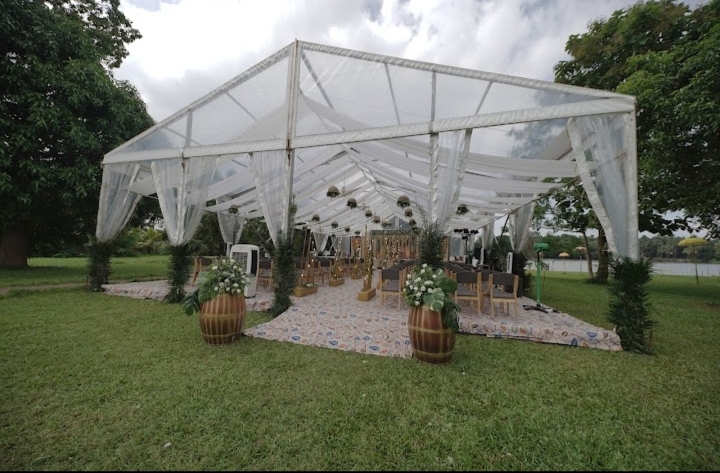Party Minds: Leading Event Management Company in Kozhikode
Party Minds is a well-established event management company in Kozhikode, known for its creative and professional event planning services. Since its establishment in 1997, Party Minds has been specializing in organizing memorable events such as weddings, birthday parties, and themed parties. In addition to event planning, they offer high-quality catering services for functions, including non-vegetarian and vegetarian options. With over two decades of experience in the industry, Party Minds has gained a solid reputation for delivering exceptional events that exceed client expectations. The company operates on weekdays from 10:00 am to 6:00 pm, offering seamless services to make every occasion special.
Credibility and Professionalism
Party Minds has built a strong foundation of trust and credibility among its clients over the years. Their team of experienced event planners and caterers ensures that every event is meticulously planned and executed to perfection. The company’s commitment to quality, professionalism, and attention to detail has earned them a loyal customer base. Whether it’s organizing a grand wedding or a themed birthday party, Party Minds delivers with precision and creativity. Their ability to adapt to client preferences and customize events according to their unique needs sets them apart as a leading event management company in Kozhikode.
Services Offered
Party Minds offers a wide range of event management services, including wedding planning, birthday party decorations, and theme party organization. They are particularly known for being expert Caterers for Weddings and Functions, providing a variety of menu options, including both non-veg and vegetarian dishes. Their team of professional chefs and servers ensures that the catering is of the highest standard, making the dining experience memorable for guests. Additionally, they excel in Theme Party Organizing, adding creativity and uniqueness to events. From small intimate gatherings to large celebrations, Party Minds ensures that each event is planned to perfection, making it enjoyable for both hosts and guests.
Location Overview
Party Minds is conveniently located in Puthiyara, Kozhikode, exactly opposite All Fine Apartment, making it easily accessible to clients throughout the city. The prime location serves as a central hub for event planning and coordination, ensuring smooth operations and quick responses to client needs. Whether you are planning a corporate function, a birthday party, or a wedding, Party Minds is ideally situated to cater to clients from across Kozhikode and nearby areas, offering convenience and top-notch services.
Customer Testimonials
-
Anjali R. - "We hired Party Minds for our wedding, and they made everything so easy for us. From the decorations to the catering, everything was perfect. Our guests loved the food, and the whole event was beautifully organized. We couldn’t have asked for better service!"
-
Rajesh M. - "Party Minds organized my son’s birthday party, and it was fantastic! The theme party decorations were vibrant and fun, and the catering was excellent. The team was professional and attentive to all our needs. Highly recommended for any event!"
Frequently Asked Questions (FAQs)
1. Who are the best Theme Party Organisers in Kozhikode?
Party Minds is a top theme party organizer in Kozhikode, known for creating vibrant and memorable events that are customized to client preferences.
2. Where can I find reliable Birthday Party Decorators in Kozhikode?
Party Minds provides exceptional birthday party decoration services in Kozhikode, offering creative setups that cater to both children and adults.
3. Are there professional Wedding Organisers in Kozhikode?
Yes, Party Minds is a trusted wedding organizer in Kozhikode, handling everything from decorations to catering, ensuring a hassle-free and memorable wedding experience.
4. Where can I find quality Caterers in Kozhikode?
Party Minds offers high-quality catering services in Kozhikode, providing a variety of dishes that cater to both vegetarian and non-vegetarian preferences for all types of events.
5. What services do Caterers For Functions in Kozhikode offer?
Caterers for functions like Party Minds provide complete catering solutions, including menu customization, food preparation, and service for weddings, birthday parties, and corporate events.
6. Are there reputed Catering Companies in Kozhikode?
Yes, Party Minds is a well-known catering company in Kozhikode, offering excellent catering services for various occasions with a focus on quality and customer satisfaction.
7. Can I find Non-Veg Caterers in Kozhikode?
Party Minds is one of the top non-veg caterers in Kozhikode, offering a wide range of delicious non-vegetarian dishes that are perfect for weddings, parties, and corporate events.
8. What are the leading Event Management Companies in Kozhikode?
Party Minds is a leading event management company in Kozhikode, specializing in organizing weddings, birthday parties, theme parties, and providing top-notch catering services for all events.









